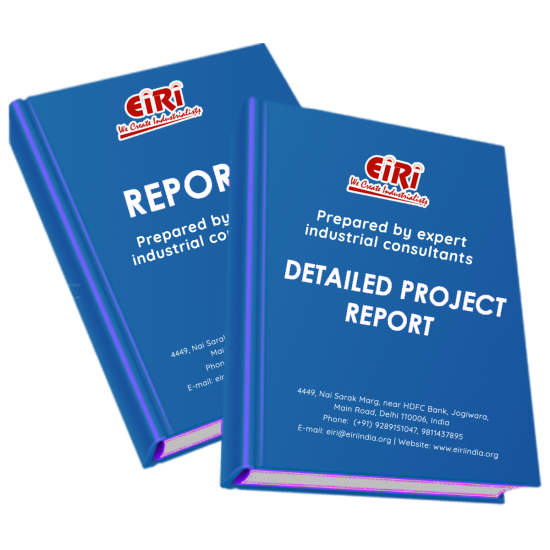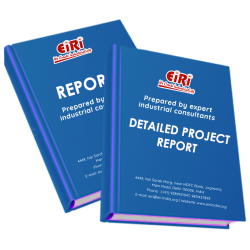Dehusking Rubber Roller for Rice Mill (10”/12”) (Production Rate: 20 Pairs per day)

- More than 40 years of experience
- Managed by expert industrial consultants
- ISO 9001-2015 Certified
- Registered under MSME, UAM No: DL01E0012000
- 24/5 Research Support
Get your quesries resolved from an industry expert. Ask your queries before report or book purchase. - Custom Research Service
Speak to the our consultant to design an exclusive study to serve your research needs. - Quality Assurance
All reports are prepared by highly qualified consultants & verified by a panel of experts. - Information Security
Your personal & confidential information is safe & secure.
DEHUSKING RUBBER ROLLER FOR RICE MILL (10”/12”) (PRODUCTION RATE – 20 PAIRS PER DAY)
[EIRI/EDPR/4554] J.C.: 2771US$
INTRODUCTION
Rubber Roller is a rubber or an elastic material covering the core of metal or other material. Rice Dehusking Rubber Roll are precisely made and fitted with the fresh CI drums and aluminum drums. These rolls are specifically used for dehusking of raw rice. Due to the use of these rolls, raw rice gets perfectly polished and whiten.
Rice (Oryza sativa L.) has been the staple food for more than half of the humanity in the world or two-third of the World’s population. Rice is the seed or kernel of paddy, which is covered by two different layers, namely- bran (inner layer) and husk (outer layer). Literally, paddy becomes rice only when the two layers are removed properly through different milling processes. In the first step, brown rice is extracted by removing hull/husk from the paddy, which contains bran layer still intact around the kernel. In the second step, the bran layer is removed by polishing machine that rubs the grains together under pressure, and the output is the polished white kernel or fine rice, which is ready for cooking. The former process is known as hulling and the latter is known as milling of paddy. But, in short, it is the conversion ratio from paddy to rice, or one can term it as hulling and milling ratio. Therefore, the two terms-1) hulling and milling ratio; 2) conversion ratio, will be used interchangeably throughout this paper.
In term of production, India has become the second largest producer of rice in the world (21 per cent of global rice production), next to China.
Generally, rice kernels are often susceptible to breakage due to inefficient milling processes. Therefore, more efficient milling processes are highly recommended for better recovery ratio and quality rice kernel production. It is also identified as one of the most important remedies for preventing post-harvest loss and an issue that is widely recognized around the world.
The processing of rice involves a number of discrete operations from husking to whitening and polishing. The efficiency of each affects the quality and hence market value of the finished product. Further, each of the operations is energy intensive and because the through put is so great can cause extreme wear to many of the machine parts. There is therefore great interest in maximizing the efficiency, increasing machine reliability, and minimizing damage to grains during such operations.
Rice as an agricultural material must have its husk removed (husked) in order to be useable as a commercial product. Two types of machines are commonly adopted in husking; impeller type and rubber roll type machines. In impeller type husking machines, the rice is scattered radially and husked by the impact of collision with an external surround. The impeller type huskers are not inherently inferior to rubber roll huskers, but continuing advancements of rubber roll type have led to their diminished use. This study focuses solely on the latter process.
COST ESTIMATION
Plant Capacity 20 Pair/Day
Land & Building (1100 sq.mt.) US$ 1.59 Lac
Plant & Machinery US$ 1.40 Lac
Working Capital for 0.5 Month US$ 12.80 Th.
Total Capital Investment US$ 3.45 Lac
Rate of Return 26%
Break Even Point 66%
CONTENTS
• INTRODUCTION
• CHARACTERISTICS OF RUBBER ROLLERS
• BIS SPECIFICATION
• MARKET INSIGHTS
• MANUFACTURERS/SUPPLIERS
• FORMULATION
• MANUFACTURING PROCESS
• PROCESSING STEP
• SUPPLIERS OF RAW MATERIALS
• SUPPLIERS OF PLANT AND MACHINERY
• ETP FACILITY
• SEWAGE AND WASTE WATER EFFLUENT
• PRINCIPLES OF PLANT LAYOUT
• PLANT LOCATION FACTORS
• ANTICIPATED ENVIRONMENTAL IMPACTS
• MITIGATION MEASURES (PROPOSED)
• HEALTH SAFETY AND ENVIRONMENT
• PROPOSED IMPLEMENTATION SCHEDULE
• PRELIMINARY LAYOUT
• PROJECT FINANCIALS
• CONCLUSIONS
APPENDIX – A:
01. PLANT ECONOMICS
02. LAND & BUILDING
03. PLANT AND MACHINERY
04. OTHER FIXED ASSESTS
05. FIXED CAPITAL
06. RAW MATERIAL
07. SALARY AND WAGES
08. UTILITIES AND OVERHEADS
09. TOTAL WORKING CAPITAL
10. TOTAL CAPITAL INVESTMENT
11. COST OF PRODUCTION
12. TURN OVER/ANNUM
13. BREAK EVEN POINT
14. RESOURCES FOR FINANCE
15. INSTALMENT PAYABLE IN 5 YEARS
16. DEPRECIATION CHART FOR 5 YEARS
17. PROFIT ANALYSIS FOR 5 YEARS
18. PROJECTED BALANCE SHEET FOR (5 YEARS)
How to Make Project Report?
Detailed Project Report (DPR) includes Present Market Position and Expected Future Demand, Technology, Manufacturing Process, Investment Opportunity, Plant Economics and Project Financials. comprehensive analysis from industry covering detailed reporting and evaluates the position of the industry by providing insights to the SWOT analysis of the industry.
Each report include Plant Capacity, requirement of Land & Building, Plant & Machinery, Flow Sheet Diagram, Raw Materials detail with suppliers list, Total Capital Investment along with detailed calculation on Rate of Return, Break-Even Analysis and Profitability Analysis. The report also provides a birds eye view of the global industry with details on projected market size and then progresses to evaluate the industry in detail.
We can prepare detailed project report on any industry as per your requirement.
We can also modify the project capacity and project cost as per your requirement. If you are planning to start a business, contact us today.
Detailed Project Report (DPR) gives you access to decisive data such as:
- Market growth drivers
- Factors limiting market growth
- Current market trends
- Market structure
- Key highlights
Overview of key market forces propelling and restraining market growth:
- Up-to-date analyses of market trends and technological improvements
- Pin-point analyses of market competition dynamics to offer you a competitive edge major competitors
- An array of graphics, BEP analysis of major industry segments
- Detailed analyses of industry trends
- A well-defined technological growth with an impact-analysis
- A clear understanding of the competitive landscape and key product segments
Need Customized Project Report?
- Ask for FREE project related details with our consultant/industry expert.
- Share your specific research requirements for customized project report.
- Request for due diligence and consumer centric studies.
- Still haven't found what you're looking for? Speak to our Custom Research Team
About Engineers India Research Institute:
Our Approach
- Our research reports comprehensively cover Indian markets (can be modified as per your country), present investigation, standpoint and gauge for a time of five years*.
- The market conjectures are produced on the premise of optional research and are cross-accepted through associations with the business players
- We use dependable wellsprings of data and databases. What's more, data from such sources is handled by us and incorporated into the report
Why buy EIRI reports?
- Our project reports include detailed analysis that help to get industry Present Market Position and Expected Future Demand.
- Offer real analysis driving variables for the business and most recent business sector patterns in the business
- This report comprehends the present status of the business by clarifying a complete SWOT examination and investigation of the interest supply circumstance
- Report gives investigation and top to bottom money related correlation of real players/competitors
- The report gives gauges of key parameters which foresees the business execution





















